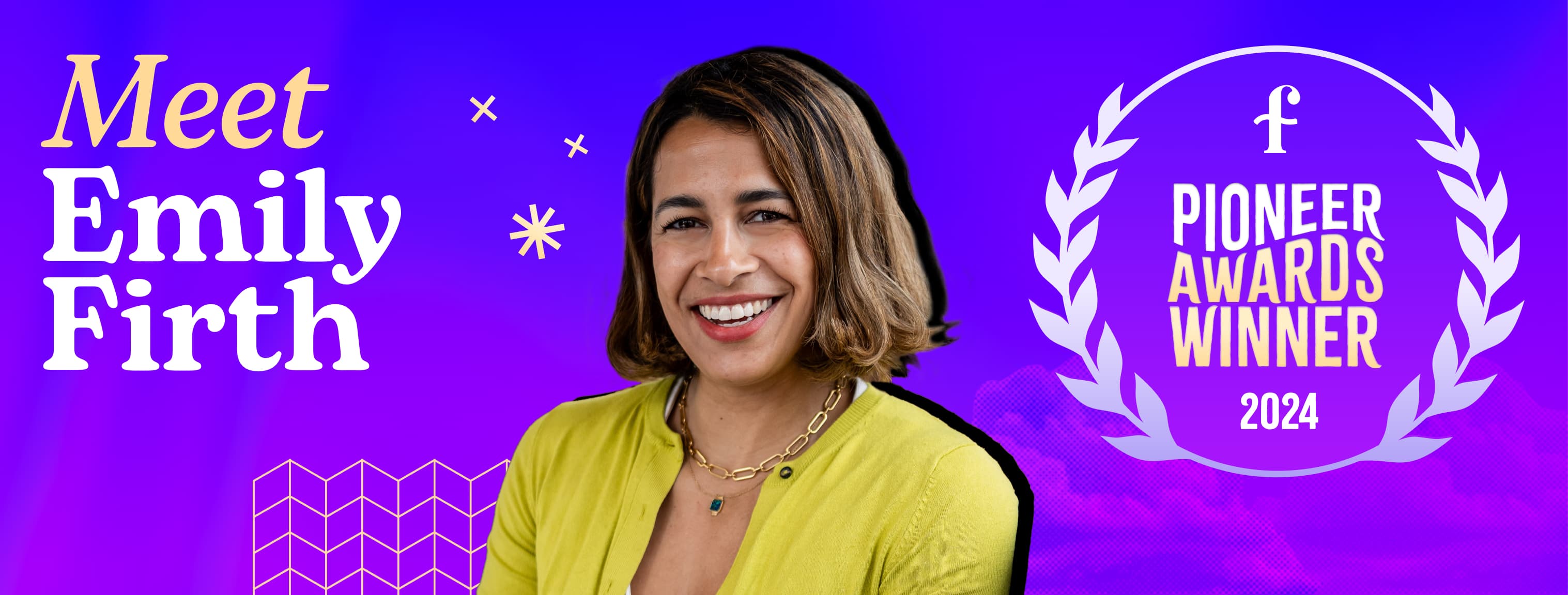Pioneer Profile: Emily Firth
Meet Emily Firth, former Head of Employer Branding at Booking.com and now Co-Founder of TheTruthWorks. Emily shares her global experience in people and culture strategies to help companies prepare for the future of work.
12th Nov 2024
• 5 minutes

It’s time that we recognise the people behind the evolving world of work. Our working lives have shifted to being more inclusive, more people-centric, more flexible, and just plain better for both employees and companies.
These changes didn’t just happen: they were put into place and upheld by individuals and teams working to create a better working future for everyone.
So we’re finally putting the spotlight on the people who make great companies great: the people-people.
People-people are crucial to the success of every company. They find you the talent that drives you forwards, and they’ve taken on an increasingly strategic role in the past few years – often taking on responsibility for mental health, diversity and inclusion, culture, EVPs, Employer Branding and team happiness.
Read more about the Pioneers List and go behind the scenes to understand how and why we’ve selected our Pioneers.
We were lucky enough to speak with Emily Firth, Co-Founder of TheTruthWorks.
Tell us a little bit about your career history, and how you got to where you are now. What were the key milestones?
I spent many years in the marketing and advertising industries. A fairly tough place to work as a young woman of colour. The culture was exhilarating but required a lot of resilience and grit to thrive. I loved it but also got burned out by it and couldn't see how to achieve any kind of balance in a senior role or as a mother. I realised also that I was also very passionate about the people side of things and shaping more inclusive and supportive cultures. I got my first client-side gig at Booking.com as their Head of Employer Branding and my career in EB and EX took off from there. I loved applying insights, comms, strategy and creative skills to the people space - helping to market culture instead of products.
After I had my first baby (and my then manager told me my ambitions would change after I had children) I decided to create my own path. Co-founding TheTruthWorks - a consultancy that helps shape cultures we would want to be a part of - with the talented Rhiannon Stroud has been a labour of love these past 5 years.
When did you become interested in the future of work?
When I started working with multiple companies around the world on their people and culture strategies and employer brands, I realised that so many of them face similar challenges. We started TheTruthWorks at the first outbreak of Covid, so nothing has been stable in the world of work from day 1 of the business. We've helped companies navigate rapid changes - from engaging remote colleagues, to dealing with the culture impact of layoffs, the hard questions we all had to ask ourselves after George Floyd, the proliferation of AI, war and political unrest. We've seen it all and supported clients with shaping their culture intentionally amid all of these developments.
What is the most impactful change that you’ve implemented?
Hard to name only one. Any time a client really implements and embeds our work with them we feel proud of the impact. I particularly like some of the recent work we've done on culture change through training - from resilience training to embedding a service culture mindset. I also love doing work with clients on core Values and Behaviours as these really get you talking about the foundations of culture.
What’s the biggest challenge of being in your role/industry right now?
Dealing with curveballs probably, especially on longer, trickier work with multiple stakeholders. But we have great clients and relationships based on trust and candour which really helps us plan ahead.
What do you think the next big trend is in working culture?
People being asked to keep doing more with less, and companies radically innovating their processes. I just want to reiterate the need for bringing your people along with you and building cultures of learning and upskilling to ensure this change actually works! Tech alone does not make you more productive.